A Warm Welcome in the Most Haredi Neighborhood on a Friday Afternoon
Tour guide Dudi Bar Sela believes the key to overcoming societal divisions is simply getting to know each other. That's why he brings groups of dozens of visitors into the heart of Haredi neighborhoods in Jerusalem: 'When you get to know people, there might be disagreement, but there won't be hatred.'
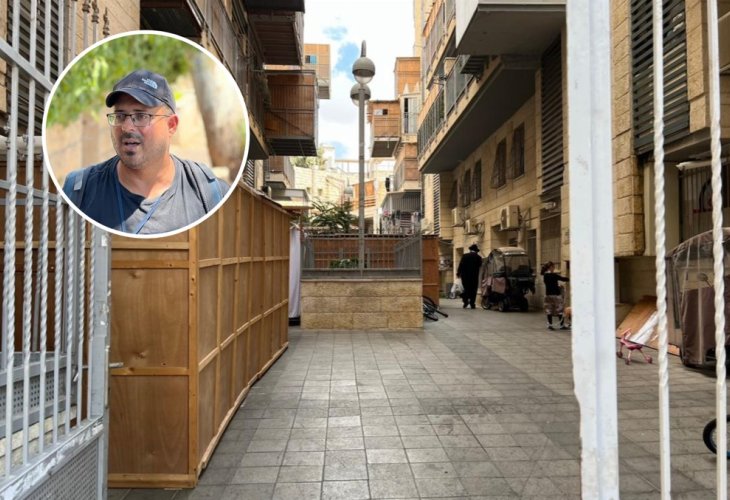 In the circle: Dudi Bar Sela. (Photo: Dudi Bar Sela)
In the circle: Dudi Bar Sela. (Photo: Dudi Bar Sela)The scene that unfolded last Sukkot near the Zikhron Moshe Synagogue in Jerusalem was both moving and surreal: A group of several dozen tourists stood there holding the four species, which passed from hand to hand, with each person blessing and waving them as tradition requires. But the most touching moment was watching the young Hasidic man standing nearby with a line of small children, all sporting long peyot, waiting patiently for the last tourist to bless and fulfill the mitzvah.
It turned out these were tourists who never planned to fulfill the commandment of the four species. They happened to be there with tour guide Dudi Bar Sela. Then, as they passed by the impressive synagogue, a Hasidic man from the Ger sect walked by with his children and on a spur of the moment offered them to bless with the four species. The offer was timely, and so dozens of group members took up the four species and blessed them.
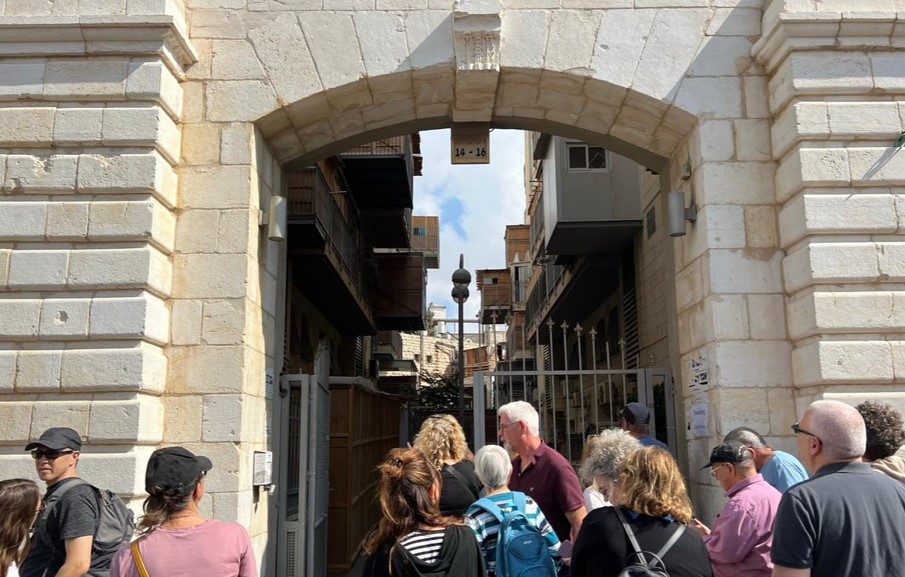 Photo: Dudi Bar Sela
Photo: Dudi Bar Sela
A Variety of Communities and Styles
Dudi Bar Sela, if you're wondering, is a tour guide who takes travelers on various tours across the country. The highlight of his tours is the "Jerusalem Outside the Box" tours, offered on the website he manages and in person.
"I take groups to places in Jerusalem they wouldn't reach on their own, or to unique concepts in places where they don't know the stories behind them," he explains. "Most visitors to Jerusalem look for the headlines: if they're after something picturesque, they go to Ein Kerem, if they want a market, they head to Mahane Yehuda, and for history, archaeology, and sanctity, the Old City is the place. But I delight in showcasing the city's special corners, particularly neighborhoods like Talbiya, Musrara, Bukharan Quarter, the German and Greek Colonies, and more. These neighborhoods give Jerusalem its unique character and color."
"Even when visiting the Old City, I strive not only to present the usual sites but also to touch upon the special stories and small corners of the Old City. If discussing Jewish content, there are areas in the Christian and Muslim Quarters where residents of the Old Settlement lived. It's an opportunity to tell about the students of the Vilna Gaon who emigrated to Israel intending to bring the redemption of Israel. Their vision was not only practical but also political. I also recount many significant landmarks that most travelers are unaware of."
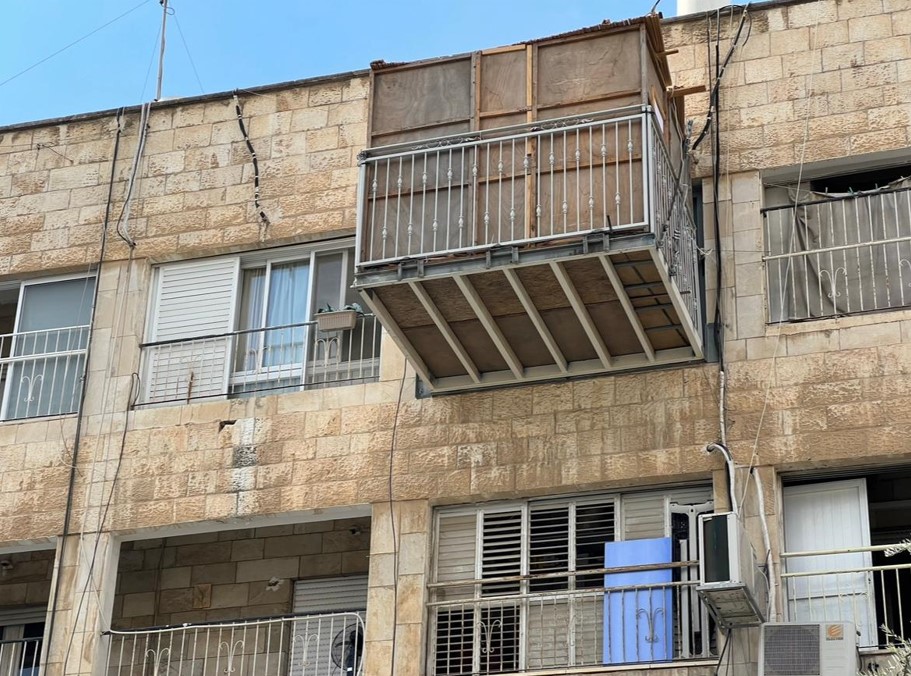 Photo: Dudi Bar Sela
Photo: Dudi Bar SelaNaturally, the Haredi neighborhoods are a significant and special destination in Dudi Bar Sela's tours. He takes visitors there and enjoys exposing them to a lifestyle most are completely unfamiliar with. "The Haredi world is very special, but many don't know it," Bar Sela emphasizes. "Most travelers I've taken are far removed from it; thus, they got used to perceiving it as one monolithic block where all Haredim look the same. The opportunity to peek deeply and understand the Haredi lifestyle up close is very appealing. It's another world, unfamiliar, just across the boundary, hence very intriguing."
"This exposure can be created in many ways. There are, for example, culinary tours mainly before Shabbat, tours that address the diversity of the Haredi world allowing visitors to see different population styles, and tours where I introduce people to the basics of Haredi society, such as the difference between Hasidim and Lithuanians, or among various Hasidic courts, including customs and dress styles. Tourists listen and enjoy starting to identify the styles of people passing by on the street. I feel that I'm opening their eyes."
"Even in terms of outlook, not everyone is familiar with the different styles. People assume 'the Haredi community' known from its kashrut certification is like the Haredim in the Knesset. But then I explain the longstanding dispute between the Haredi community, Agudat Israel, and the Lithuanian public. While in the Haredi community they are strongly opposed to the State of Israel, believing even if there's a Haredi prime minister, participating in the government is forbidden until Mashiach comes, the Torah leaders of Agudah and Degel believe in integrating into the state and voting in elections. The Chazon Ish claimed, for example, that voting is obligatory and even noted it's a mitzvah. Although when asked if it's a mitzvah like eating matzah on Pesach, he responded, 'No, it's a mitzvah like eating maror'. Thus, he expressed his objection to the state's non-Torah-based conduct while emphasizing the mitzvah to participate and influence."
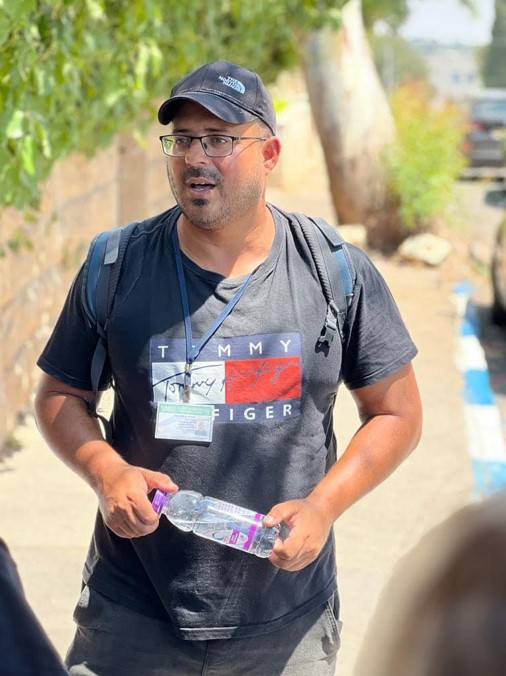 Photo: Dudi Bar Sela
Photo: Dudi Bar SelaThe Goal: Foster Understanding
A typical secular Israeli interested in all these stories and the analysis of Haredi society?
"Most times, I find this exposure genuinely interests the secular visitors. At the end of the tour, after hours of guiding them through different neighborhoods with synagogues and yeshivot, the question arises: 'Why don't you take us to the most extreme place – the Mea Shearim neighborhood?' I always explain that I simply don't see the point. Also, I'm concerned about the reactions I might get as some residents of Mea Shearim aren't interested in tourists entering their neighborhood. Furthermore, it's not representative of Haredi society as a whole, and my aim is to show them the society as a whole, not just an extreme experience."
Sometimes, visitors in Bar Sela's groups find themselves in the homes of Haredi families welcoming them warmly. "There's, for example, the wonderful Nadav family," he notes. "This is a very special family living in Shaarei Hesed; the father is a dayan and a great Torah scholar, and the mother is an extraordinary woman. I've brought groups to visit them even during tense periods of social division, and each time they leave with new insights and slightly changed perspectives on Haredi society. People often tell me, 'We don't agree with them, but it's impossible to ignore their warmth and hospitality, which they offer wholeheartedly. It's entirely different from what's shown to us in the media."
In another instance, Bar Sela guided a group of about 15 family members who, for their grandmother's birthday, went with her to see the house where she grew up in the Battei Arza area of the Gush 80 neighborhood. "We arrived in the neighborhood by minibus on a Friday afternoon – the busiest time in dense Haredi areas," he recounts. "Nevertheless, I must say the neighborhood's residents received us wonderfully. They asked what we were looking for, and when we told them about the grandmother's home, they successfully directed us precisely to the building. We entered it as a noisy group far from the Haredi style, and there, too, we met people who greeted us warmly. One of the building's residents offered us challot she baked for Shabbat, another shared her memories of the grandmother's descendants and family members. Fascinating conversations developed among everyone, and meanwhile, we saw the building's children returning from school, one with a leaflet from the cheder, and another with a treat they received at the *Kabbalat Shabbat*. These sights warmed the heart and were full of Jewish charm and beauty. We all felt this is the true people of Israel, without the fences and divisions they try to sell us."
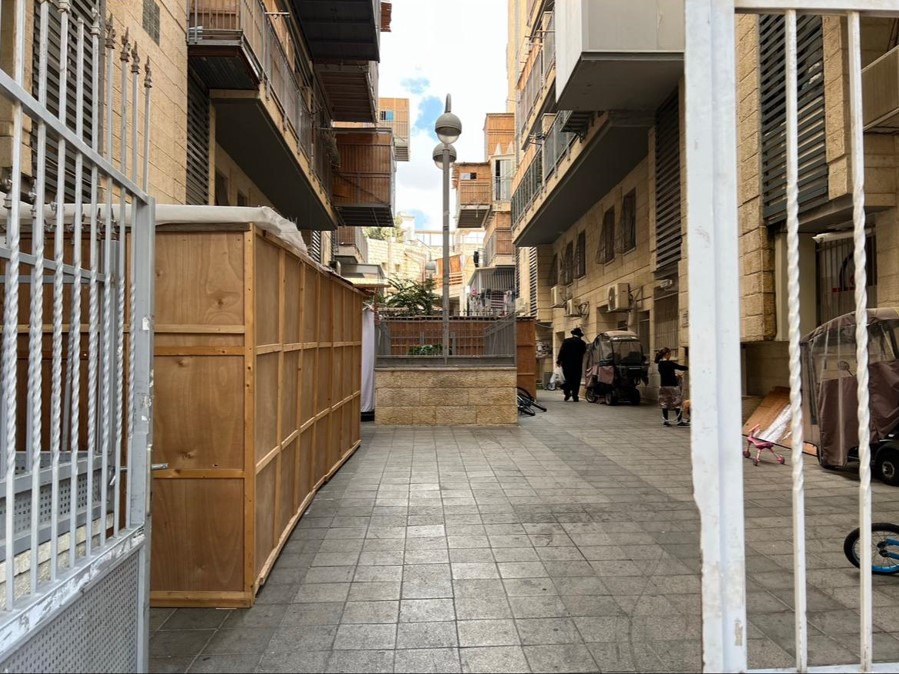 Photo: Dudi Bar Sela
Photo: Dudi Bar Sela
Add Unconditional Love
Dudi Bar Sela also leads special tours during Sukkot, having discovered several times that the holiday particularly fascinates visitors. "Travelers want to learn as much as possible about the Haredi community, and the festive atmosphere on the streets, along with the sukkot erected in every corner, certainly allows that," he explains.
In this regard, Bar Sela emphasizes that visitors show great interest in the halachic aspect, wanting to understand why some sukkot have only three sides or cover a small area, yet are considered kosher. They are also intrigued by large sukkot built near synagogues, and sometimes reasonably upset about unsafe sukkot built on balconies that seem overextended. "I always joke that ten miracles happened in Jerusalem, and this is the eleventh. But of course, it's not funny at all. It's a significant danger, and clearly, attention must be paid to it. Sometimes our tours extend into the night, and tourists continue to visit Simchat Beit HaShoevas and other events happening in the city. It's a type of experience unfamiliar to them, providing much color and interest."
In these days, unfortunately marked by division and polarization among the people, do you also encounter less pleasant incidents at the meeting points between the communities?
"It happens rarely. Sometimes a tourist might express an opinion on the Haredi world, inattentive to 'the walls have ears', essentially being overheard by others on the street, or conversely – from a few extreme residents surrounding Mea Shearim who might shout for us to leave their neighborhood. But generally speaking, I must say there's mutual respect, it's an amazing and moving opportunity to see the authentic Haredi world. Even if someone occasionally says or behaves inappropriately, I explain to tourists that it's just one bad apple not indicative of the whole society, and they certainly understand.
"Every time they leave the tour filled with inspiration and admiration, I feel I contributed as much as I can towards unity among the people of Israel. Hatred grows where there's no knowledge and familiarity, while knowing people allows for disagreement, but not hatred. I'm sure the sights they experience on these tours will stay with them and resonate in their hearts when they hear through the media or other sources less flattering stories about the Haredi world. Thanks to these experiences, they'll be able to see the picture in a much more balanced and accurate way."

